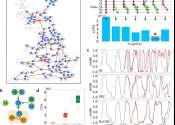AI system successfully operates 16-ton forest machine
For the first time, scientists have succeeded in creating a self-driving forest machine controlled by artificial intelligence. In a study at Umeå University, an AI system was developed that can operate a 16-ton machine without ...
Jun 20, 2024
0
20









